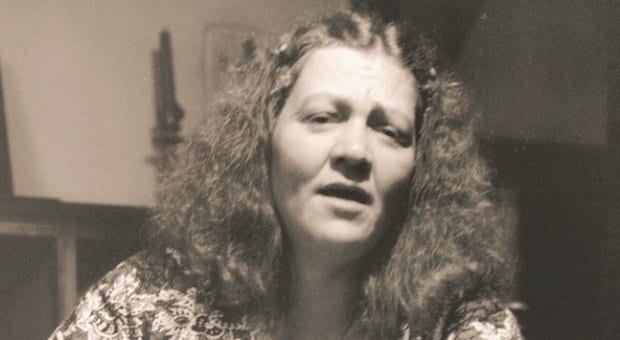With lyrics about unions, discrimination and bullying, Arlene Mantle’s songs became the soundtrack to Toronto’s workers’ and women’s rights movements in the 1980s. But with such direct, call-to-action songwriting, like that in “Smash the Right,” her songs could have easily been written for the more recent Occupy movement, Montreal student protests or Idle No More.
Fittingly, the work of the activist, musician and proud lesbian, who died last September at age 72, will be brought back to life as part of the Mayworks Festival of Working People and the Arts.
The festival runs until May 15, with theatre, music, poetry, workshops and film events taking place throughout Toronto. The tribute concert to Mantle, at Trinity St Paul’s United Church on May 11, is one of the festival’s biggest events this year.
“Arlene — her songs, her work, her organizing — still resonates and has meaning for today’s organizing,” says event host Angela Robertson. “The players may have changed and the structures where inequality resides may have changed, but inequality still exists.”
Robertson, a founding member of black Pride group Blockorama, met Mantle when they were both politically active in the 1980s.
“She spoke about the reality of working women’s lives, the impact of poverty on women’s lives. She talked about the need for women organizing as workers and as a response to inequality, and that resonated with me,” Robertson says.
Though a woman of little financial means, Mantle managed to have an impact on many people, mostly through her music. The collective songwriting sessions she hosted helped marginalized groups get their messages out, her former manager and long-time friend Jayne Walker says.
“Arlene was a woman who had many struggles in her life, not only as a poor woman, but as a beaten woman and a lesbian woman. But she was outspoken; she voiced things that many people couldn’t say. She was a wonderful entertainer, a fabulous musician and so funny,” Walker says.
Many faces — some familiar, some new — are coming together for the celebration: dub poet Lillian Allen; activists and musicians Faith Nolan, Dinah Thorpe and Amai Kuda; Chilean band Grupo Taller; and Mantle’s daughter, Lynn.
“It’s going to be a ruckus night and one that would be in the spirit of Arlene — the range of artists that are on the program are not from any one agenda,” Robertson says.
The rest of the festival gives a platform to a similar variety of voices, from an Idle No More teach-in (May 11 at Toronto Council Fire Native Cultural Centre), to works inspired by the impact of government austerity measures on the Jane and Finch neighbourhood (May 1 at York Woods Library).
Events by queer artists include Spatial Profiling, an installation by Francisco-Fernando Granados (May 2 at Huntclub), and a play, Karuppi (May 5 at Wychwood Theatre), and theatre workshop (May 8 at the Academy of the Impossible) by theatre artist Ponni Arasu.

 Why you can trust Xtra
Why you can trust Xtra


